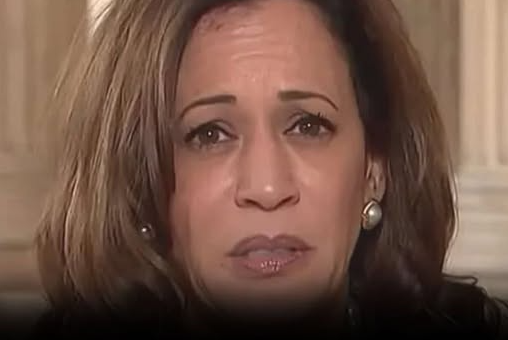Just twenty minutes ago, history was made on the convention floor in California as Vice President Kamala Harris was officially confirmed as the Democratic Party’s nominee for President of the United States. The moment, sealed by the thunderous vote of delegates from every corner of the nation, was not just another political milestone—it was a cultural and historic breakthrough. Harris now stands as the first woman of color to lead a major political party’s presidential ticket, a development that many described as both long overdue and profoundly symbolic for the future of American politics.
The announcement sent the arena into an eruption of applause, cheers, and chants of her name. Delegates waved banners, many visibly emotional, as the results were declared and the nomination became official. It was more than the selection of a candidate; it was the moment the Democratic Party solidified its standard-bearer heading into one of the most consequential elections in modern history.
Harris’s elevation to the top of the ticket follows weeks of intense political maneuvering and speculation after President Joe Biden’s unexpected but decisive decision to withdraw from the race. By endorsing his vice president, Biden passed the torch to the woman who has been his partner in governance for nearly four years. That endorsement reshaped the political landscape almost overnight, allowing Harris to consolidate support from party leaders, progressive activists, and grassroots organizers eager for a new generation of leadership.
Her campaign, as strategists have already hinted, is expected to highlight issues that have long defined her political identity—reproductive rights, economic fairness, access to affordable healthcare, and decisive action on climate change. In every speech so far, Harris has sought to frame herself not only as a defender of core Democratic values but also as a fighter willing to challenge inequality and systemic injustice. At the same time, she is preparing to draw sharp, personal contrasts with her Republican opponent, casting the race as a clear choice between two visions for America’s future.
For her supporters, the nomination is a rallying point. Many describe Harris as a dynamic and battle-tested leader who can energize young people, women, and communities of color while also reaching moderate voters crucial to victory in swing states. Across the country, progressive groups and women’s organizations have already begun celebrating what they call a transformative candidacy, one that symbolizes resilience, representation, and possibility.
Yet Harris’s path is far from smooth. She inherits a party that has endured years of internal divisions, from ideological splits between progressives and moderates to doubts about the direction of the Biden administration. Winning over undecided voters—many of whom remain skeptical of both parties—will require Harris to sharpen her message and articulate a compelling vision for the country. The Republican Party, meanwhile, wasted no time in mobilizing. Their messaging has already framed the upcoming election as a referendum on the Biden-Harris years, seeking to tie Harris to every criticism leveled against the current administration.
Polls already reflect the intensity of the challenge ahead. Surveys show a race that is neck-and-neck, with each side fiercely competing for a handful of battleground states that will almost certainly decide the outcome in November. Both campaigns are preparing for one of the most expensive, aggressive, and closely fought elections in recent memory.
As news of Harris’s official nomination spreads, reactions are flooding in from across the nation. For many Democrats, it represents a hopeful turning point and a chance to re-energize a base that has at times felt uncertain. For conservatives, it is a call to arms, a moment to intensify criticism and consolidate opposition.
What is certain is that the 2024 election has now entered a new and historic chapter. With only months to go before Election Day, Kamala Harris’s confirmation sets the stage for a high-stakes, fiercely contested campaign—one that will test not only the candidates but also the very direction of the nation in the years to come.
